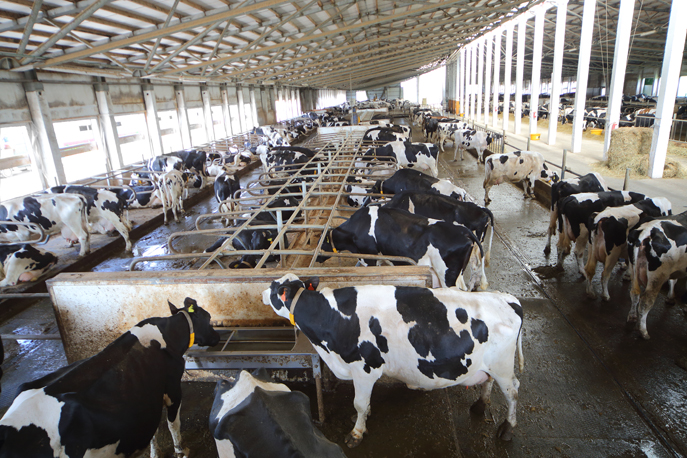In his monthly column, Oliver Balch reports on some of the big issues for fast-moving consumer goods companies ahead of the crucial climate conference
All eyes are, very naturally, on climate breakthroughs at COP26 in Glasgow. But before delegates get deep into the weeds of “double counting”, “common timeframes”, “NDCs” and so on, a moment looking up at the trees would do them well. Old style as they are, forests remain a bulwark in the fight against climate change. The magic of arboreal photosynthesis absorbs 7.6bn metric tonnes of CO2 per year, exceeding the total emissions of the U.S. by 50%. Even before discussions start about how to reforest, simply stopping the felling of existing trees would buy the planet time.
Big brands know this. Hence, the decision back in 2014 of 49 leading companies to join numerous national governments in pledging to end deforestation by 2030. The trajectory, however, is going in the wrong direction. Over 4.2m hectares of tropical forest were lost in 2020, according to an external analysis of progress by the declaration’s signatories. For natural forests of all kinds, that figure more than doubles, to 9m ha). Efforts will need to be scaled up by a factor of five by the end of the decade to ensure forests deliver their projected share to achieving the Paris Agreement.
Government inertia has not helped. Over the last decade, countries have spent a mere $2.4bn a year on national and international forest and climate goals, a fraction of the $460bn per year required. Indonesia’s recent decision to walk away from a $1bn deal with Norway under the United Nations’ flagship REDD+ mechanism, which channels public and private funds for reforestation and other emission-reduction efforts, strikes an equally perturbing note. At the recent UN Biodiversity summit (also, confusingly, called a COP), the Chinese government made a step to adjust the balance, pledging $230bn for nature protection programmes. (See Policy Watch: On eve of COP26, all eyes are on whether G20 will step up on climate ambition) In sum, the idea that brands might look to government for leadership feels overly hopeful.
That said, brands have hardly fulfilled their side of the bargain. Pledges under the New York Declaration to halve deforestation by 2020 have already sped by in the rear-view mirror. It doesn’t help that global large banks like JPMorgan and HSBC continue to fund agribusinesses involved in deforestation (to the tune of $157bn between 2016 and 2020, according to campaign group Global Witness. A recent in-depth investigation by Greenpeace into deforestation in the Amazon and Cerrado regions of Brazil illustrates the impacts of such investments, finding that U.S. grain giant Cargill, which supplies global food brands such as Arla, Cadbury and Saputo, sourced from irresponsible soya producers.

In response, Mondelēz, which owns Cadbury, says it has asked the UK government to weed out rogue producers by legislating for mandatory reporting across the whole supply chain. The appeal echoes a provisional agreement earlier this year between the UK and Indonesia to promote greater transparency and disclosure among suppliers in order to “support decision making throughout the supply chain”.
Yet, the record on transparency initiatives of this kind is mixed. Take the palm oil sector. After sky-high rates for years, deforestation linked to this in-demand commodity is finally showing signs of slowing, dropping by 42% in the first six months of this year compared with 2020. Certification schemes such as RSPO, coupled with moves to publish details of suppliers by the likes of Unilever, help explain the shift. Yet such schemes only deal with one side of the supply-demand relationship. According to Chain Reaction Research, the researchers behind the findings, the worst offenders tend to be Indonesian palm-oil firms supplying biofuel into their domestic market, where demand for a certification stamp is next to non-existent.
Under Article 5.3, the Paris Agreement commits nation states to support “policy approaches and positive incentives” for activities geared towards enhancing forest carbon stocks, as well as preventing deforestation (note: land use changes now cause almost one quarter of all man-made emissions).
More than 1,000 companies signed a public letter to policymakers ahead of the recent UN biodiversity summit calling for governments to reverse nature loss this decade. They need to take the same message to COP26, pushing delegates to show how they plan to meaningfully protect these invaluable terrestrial sinks, while not forgetting to release credible action plans of their own.
Climate impact of plastics in focus
One contributor to climate change that has been under-appreciated is the plastics industry, according to a new report from Beyond Plastics, released in the runup to COP26. The Vermont project, led by former U.S. EPA administrator Judith Enck, finds that the U.S. plastics industry alone is responsible for at least 232m tons of greenhouse gases a year, equal to 116.5GW in coal plants.
Amid growing consumer concern about plastic packaging, the concept of refilling gained a boost recently when UK supermarket chain Tesco announced a large in-store refilling station. The Ecolab initiative will enable buyers to use refillable containers to buy 35 own-brand Tesco essentials in pre-set volumes. A number of leading brands, including Persil, Carex, Tetley Tea and BrewDog, are also involved.
The scheme is rolling out in conjunction with refill specialist Loop, which is launching similar initiatives with selected retailers in the U.S. (i.e. Walgreen/Duane Reade and Kroger stores), Japan, France and Australia. In-store refilling is not without recent precedent. Coca-Cola, Unilever, Procter & Gamble and Body Shop are just some of the brands to have experimented with in-store refill stations of late.
However a new report shows that moves by big brands towards refilling and other strategies to cut down on plastic waste are taking time to bear fruit. In its annual audit of plastic waste by brands, Break Free From Plastic said Coca-Cola had retained its dubious title as the world’s top plastic polluter for the fourth year in a row, despite voluntary commitments dating from 2018 to collect one bottle for every one sold.
PepsiCo remained steady at number two, although it has announced new voluntary commitments to halve its use of virgin plastic by 2030, while Unilever, which has made a similar commitment, leapt over Nestlé in this year’s audit to claim the third spot, a development that the report described as “egregious”, given that Unilever is one of COP 26’s main corporate sponsors.
High-end fashion latches on to repair and reuse

While plastic waste is one of the biggest consumer concerns, the apparel industry is also in the spotlight. Some clothing brands are stepping up with repair and reuse initiatives. German e-commerce brand Zalando, for instance, is now trialling a Care & Repair post-purchase service that points buyers to a list of local repair and alteration providers in their area. The innovation, which is being piloted in Berlin initially, is developed in association with UK-based virtual fashion tracker app, Save Your Wardrobe. A similar partnership – this time with high-end aftercare firm The Restory – is behind a move by luxury footwear brand Manolo Blahnik to offer shoppers post-purchase repair services.
Note, all these new initiatives are designed around relatively high-value products that consumers have an incentive to hang onto. Despite growing discussion in industry and government about reducing premature obsolescence and introducing right to repair rules, reuse remains a major challenge to conventional retail business models based on low-price, high-frequency sales.
Women in the workplace: the lost years
Despite decades of pressure to turn the tide on gender inequality, the uphill battle for fairness in the workplace continues. A new survey of 9,628 UK companies by the BBC finds that a staggering 7,572 still have a pay gap that favours men. The story, as ever, is a little more nuanced than the headline suggests. The median pay measure is negligible in some sectors (like food at 0.1% difference, and health, 0.5%), for instance, but severe in others (such as finance, 24%, and construction, 23.8%). Likewise, 1,286 of those surveyed have pay gaps favouring women. Yet, the general trend is clear: more than half-a-century on from the Equal Pay Act and gender balance remains an ongoing struggle.
Covid-19 hasn’t helped. Research from the U.S. suggests that women’s work-related stress levels were considerably higher than their male counterparts during the pandemic (74% vs 61%). The findings back up insights from Mckinsey & Co‘s recent Women in the Workplace report, which shows that nearly half of senior female executives are feeling burned out and one in three are chronically stressed. Little wonder that nearly one third (31%) of female workers in the UK cite maintaining their mental health as their top “stressor” (with 33% citing avoiding Covid at work).
The heaviest burden of all has fallen on women in low-income countries, where existing financial and childcare stresses have multiplied during the pandemic. Not only were women harder hit by job losses (4.2% vs 3% in 2020), but they make up less than one quarter of Covid-19 recovery working groups surveyed by the United Nations. When it comes to achieving gender equality (a component of more than one fifth of the Sustainable Development Goals’ 251 indicators), developing nations could be looking at a setback of close to four decades, warns UNCTAD’s secretary-general Rebeca Grynspan.

No single brand can correct this imbalance. But they can point the way forward. What women in work want is not gimmicks or perks, but a fair, high-trust, parent-friendly working environment. Asos laid down a marker for other brands earlier this month by offering flexible hours and time off at short notice for women going through the menopause. As part of its move towards a more “gender-neutral” workplace, the fashion retailer is offering similar provisions for female employees who have experienced a pregnancy loss or who are undergoing fertility treatment.
The value of such moves is evident. A recent study by Circle In, an Australian employee-support organisation, found that nearly half (46%) of menopausal women felt the need to hide their condition at work, leading to high levels of stress. Yet Asos’s announcement met with a mixed response. The Irish columnist Melanie McDonagh, for instance, dismissed the move as liberal-minded pandering, arguing that the menopause is “part of life and you just get on with it”.
Obviously, establishing clear progressive policies around gender parity is a must for brands. Backing these up with measurable, time-bound targets is all the better. The London-headquartered construction contractor Multiplex, for instance, recently announced its desire to have 10% of its UK projects led by women by 2023. Not an especially high bar, perhaps, but change has to start somewhere. As the response to Asos’s flexibility scheme shows, however, progressive policies will never be the whole answer. Brands also need to consider how to challenge, and change, entrenched social attitudes.
This article is part of our pre-COP26 Sustainable Business Review. See also:
Policy Watch: On eve of COP26, all eyes are on whether G20 will step up on climate ambition
ESG Watch: New net-zero standard aims to help investors mind the climate action gap
Investors want to back net-zero, but COP26 needs to come up with a plan, says Günther Thallinger
Alexsandro Broedel: ‘Sustainabililty is part of the business model, not something that stands alone’
This article was updated on 1 November to remove a reference to clothing brand Patagonia.
COP26 deforestation Palm Oil soy production Cerrado COP15 biodiversity summit tesco Loop refillable packaging plastics repar and reuse right to repair equal pay women in the workplace Mental health
